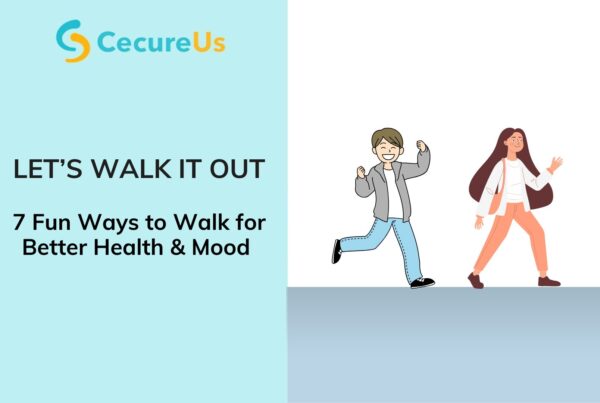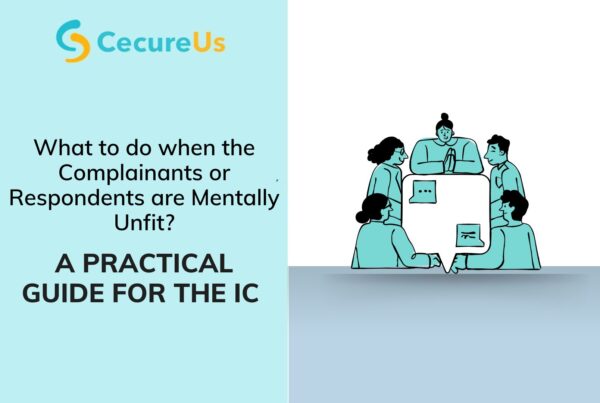The Prevention of Sexual harassment or PoSH is a topic that has garnered much attention in recent years. Thanks to the PoSH Act 2013, passed by the government of India for the safety and security of working women, sexual harassment against women is not tolerated anymore. Victims of sexual harassment can voice against the perpetrators, and the myths about women silently enduring harassment in workplaces are busted. On the one hand, the PoSH law has been a saviour for working women across various sectors, and on the other hand, the #metoo movement has created much-needed awareness and open discussions about the sensitive topic of sexual harassment itself.
Child Sexual Abuse is tremendously disturbing. More often than not, we, as a community, especially women, shy away from speaking about it. Many experts feel that this silence from the women could be a consequential reason for the rampant occurrences of sexual crimes against women and Child sexual abuse. Like the PoSH law that has given women to speak up, the POSCO act exists to safeguard our children from sexual crimes.
Not speaking about sexual harassment openly and refraining from educating our children on PoSH may have led to the building of several myths around this topic, putting our little ones more at risk of exposure to sexual crimes, thereby becoming victims of sexual abuse.
We have posted several articles on PoSH and safe workplaces for women. Through this article, we aim to break the silence on Child Sex Abuse by busting some myths surrounding the same. The more we speak about this harassment, the more we equip our women, children, and ourselves to prevent such harassment incidents, support the victims, and call out perpetrators fearlessly!
Here we go!
Myth 1: Strangers or unknown adults are more likely to sexually abuse children
Fact: Unlike in the case of women, where anyone can be the perpetrator, except for 10% of cases where strangers are involved in sexually abusing children, 90% of the issues point to incidents where children were sexually harassed by someone familiar to them, and their parents. Either the children or their parents trusted the perpetrator.
This myth is one of the most believed and thus the most problematic.
Experts believe and have proved in many cases that
perpetrators succeed in establishing a good relationship with the parents and the children before committing the crime. Blinding parents to the possibility of such occurrences, these perpetrators leave the child victims depressed, scared, and confused about who they can trust and who would trust them if they spoke about the incident.
There are also cases where family members have been known to be the perpetrators. While it is disheartening, it is also quite likely.
Myth 2: Children do not fall prey to sexual abuse in affluent or good communities
Fact: Perpetrators can be from any community, family, economic or social background. They could be men or women, extremely educated, or otherwise. To sum up, there has been no classified or categorized profile or personality for an abuser. And child victims can be from any community.
In numerous cases, those who turned out to be the abusers were people who were loved and respected by a majority of their community or neighbourhood. The point to be noted here is that children are susceptible to sexual abuse, irrespective of the community in which we live.
Myth 3: Children tend to be at a higher risk of sexual abuse by male paedophiles
Fact: While we absolutely need to be aware of paedophiles, we should be conscious that they are not the only ones to fear. The notion that male paedophiles are the apparent perpetrators can cause our children to fall victim to abuse from abusers who are not paedophiles. Women and even teens have been known to sexually abuse children or those below 18 years.
Also, while most paedophiles are men, it is not always the case.
The motivations to sexually abuse a child are diverse, and thus, it is vital to understand that the perpetrators could be disparate. They can be men, women, or sometimes, even teens. Some of them could be situational offenders.
Studies show that adolescents and teenagers sexually abuse children younger than them but do not really grow up to become sexual offenders. Unfortunately, the children become victims of sexual harassment.
Myth 4: Young girls are more susceptible to sexual abuse than boys
Fact: As per data and crime report statistics, girls have been sexually abused more than young boys and men. However, the truth is that boys are as much at risk of sexual harassment as girls and young women are.
While with girls and women, there are more cases reported, with the boys, there tends to be a lot of shame associated with being harassed. This keeps the male victims sceptical of complaining. If all cases were to be reported, experts believe there would not be much difference between the number of girl and boy victims.
Overall, our children should be aware and kept safe, irrespective of gender.
Myth 5: Children are naturally bound to speak out to someone they trust if they have been a sexual abuse victim
Fact: Generally, children are forthcoming about their experiences and love narrating them. Going through sexual harassment, however, is an unpleasant experience that prevents them from talking about it. Truth, very few child victims come forward to complain of abuse, including sexual abuse.
The reasons for this could be as follows.
In many cases, the perpetrator convinces the child that it is entirely their fault and that their parents would blame them or might not believe them. In several incidents, the victim is unaware of what is happening and is confused about their experience.
There is also a sense of shame that they associate with being sexually harassed because, to a large extent, adults have taught them that anything to do with sex or sexuality is shameful, causing them to wrongly associate the incident as their fault.
There are also cases where a child cannot show evidence of abuse, thus rendering them helpless.
It is therefore imperative to understand that children will not, in most cases, speak out about their experience of being sexually abused until much later.
Myth 6: The trauma is only physical, and children get over child sexual abuse in no time.
Fact: The trauma of sexual abuse or harassment is one that victims do not get over, whether child or an adult. Victims of Sexual abuse need all the physical, mental, and psychological help they can get to enable them to heal completely.
Studies have shown that several child sexual abuse victims grow up to become anti-social or undergo severe psychological issues. The personality of such children may change drastically, affecting their lives and their future. Some may even go on to become aggressive criminals when they grow up!
Parents and children need to undergo Sex Education primarily to educate the little ones and ourselves about consent, good touch and bad touch, and several other topics that each child ought to know. As parents, we need to understand that this does not corrupt children, and the thought is a myth. In fact, it helps them perceive what could be happening to them and equips them with the knowledge of how to get out of uncomfortable situations. Also, we need to learn to respect their feelings or inhibitions and trust them when they come to us with their troubles. Listening to what they have to say without judgement strengthens our bonds with them and creates a trust factor that will enable them to reach out to us when faced with troubles. This holds true even as they grow up.
Here are a few tips to help you identify if something may be amiss with your child:
- Observe if your child is showing any withdrawal behaviour, especially among particular people or groups.
- Look out for signs, signals, or body language that indicate that your child may not be comfortable with any specific person or individual.
- Never force your child to hug or kiss anyone or be hugged or kissed by anyone, including yourself, if they are unwilling.
- Report any form of sexual abuse. Do not hesitate – you may, in fact, be saving another child from being a victim.
- Seek counsellors support at eap.cecureus.com or call national helpline 1098.
Being aware is the first weapon you and your child need to keep in your arsenal. Read about the POCSO Act, 2012 here (https://wcd.nic.in/acts/protection-children-sexual-offences-rules-2020)and know that just like PoSH laws that keep women safe, the POSCO act can help keep your children safe. Dial 1098 or 100 for immediate help from the police to file child sexual abuse complaints.
For more information on Prevention of Sexual Harassment(POSH), EAP (Employee Assistance Programs), D&I (Diversity and Inclusion) offerings by CecureUs , please contact connect@cecureus.com or call us at +91-7200500221




